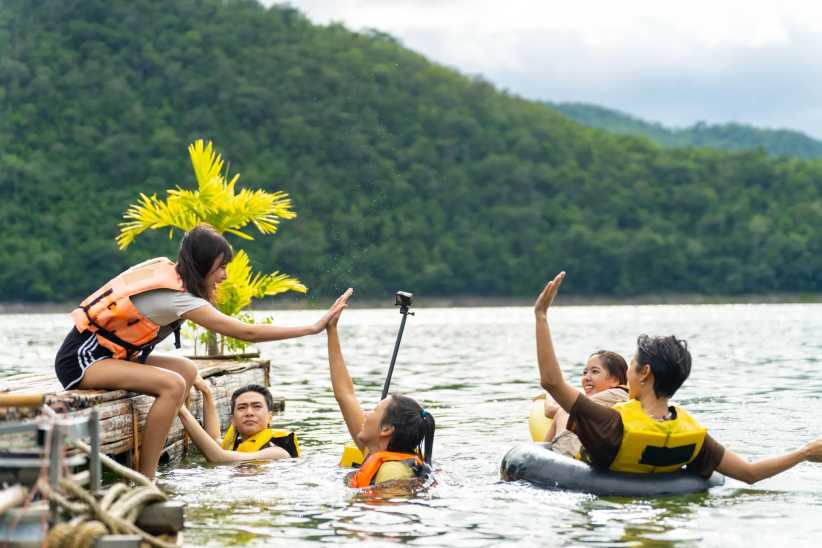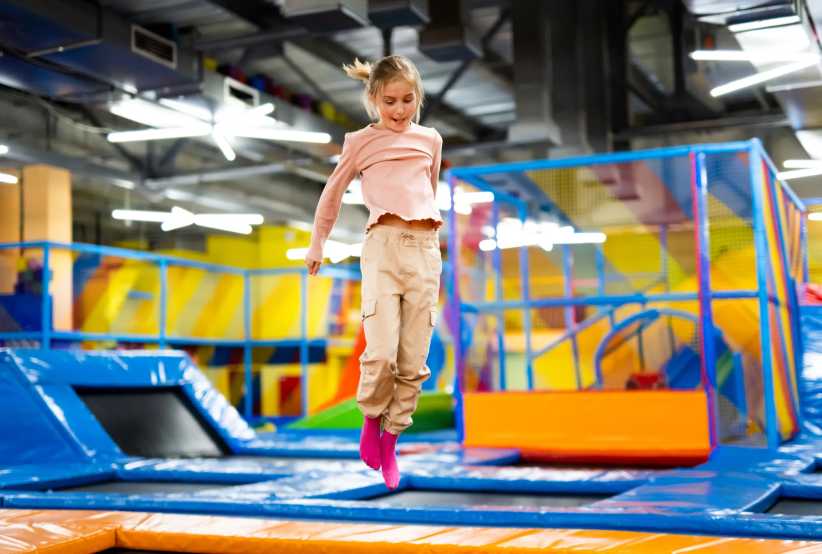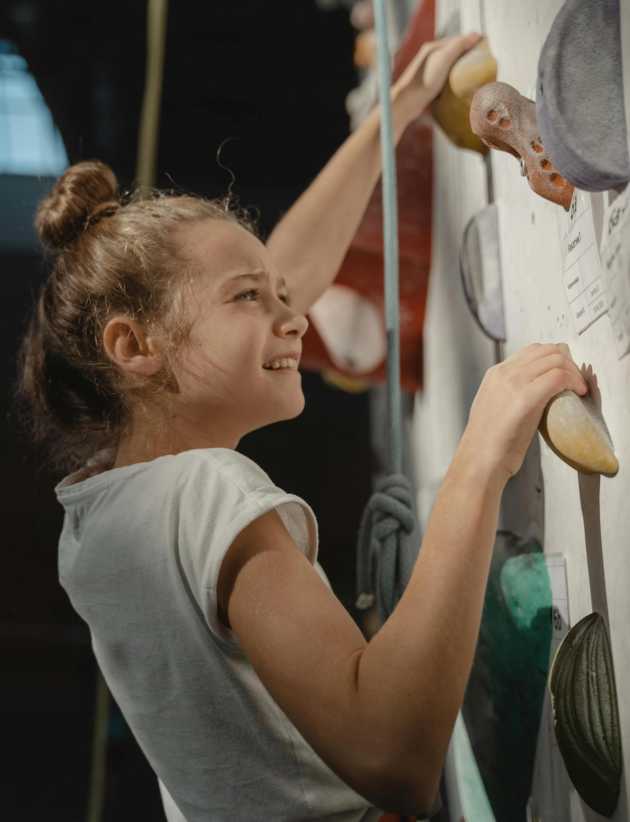
One of the most fundamental rules in improv comedy is that a player must never negate the ideas of another player. The response to another’s suggestions, no matter how crazy, inane, or mundane, must always be: “Yes, and…”. It seems simple, but it’s a rather profound notion: To accept another’s ideas and incorporate them into one’s own as a matter of principle requires a great deal of letting go of fear and control. It requires a lot of letting in, too: Of trust, collaboration, and communication.
There are many important skills required for improv: Listening, for a start; also, concentration, quick thinking, and being able to recognize opportunities as they arise. But this fundamental rule—”Yes, and…”–requires a flexibility in thought, a reframing of the story, a tweak to the situation that the players find themselves in, not the ones they want to be in, that makes improv an exceptional communication practice. In particular, improv is perhaps the single best practice for kids with disabilities, whose barriers to communication may otherwise impede the full expression of their amazing and singular selves.
Here’s the part where I let you in on the New York City’s most authentic learning experience for kids with learning and language disabilities: Enter Laughing, a therapeutic and improvisational play class for social, emotional, and executive functioning skills development. Developed and lead by Pat Sciortino, an educator and specialist with over 14 years of experience working with gifted and twice exceptional children, Enter Laughing was created for kids with learning differences like executive functioning delays, pragmatic language issues, ADD, and ADHD. “The core of the class,” Sciortino says, “is to give kids a platform for their strengths: Their quirky senses of humor, their amazing broad-based knowledge and creativity. What happens, though, is that in the course of our play, we end up developing the weak spots, too.”
A typical class begins with warm-ups. “There is nothing like laughter to bond a group,” Sciortino explains, and her warm up games are meant to establish the trust in the group, to lay the groundwork for the respect that is crucial for a class like this, and to get kids laughing. A game called The Rant, for example, invites the players to stand up and rant about something that has been bugging them that week. “When they get to spew stuff that bothers them,” Sciortino says. “Often what happens is, it becomes funny. And the kids in the audience love to jump in–‘That happened to me once!’ And all of a sudden, a child who is maybe talking about a stupid bully at school, in this humorous ranting format, encourages somebody else to start talking about a similar concern, and that’s the point! Guess what? Somebody else feels exactly like you do.”
The learning goes even further here, too. Sciortino uses these moments to talk with the kids about why they can all laugh about these rants together, and how their game connects to real world practice: “You want to know what makes people laugh?” she tells the kids. “When you say things that people can identify with. Whenever you talk about something that someone else has experienced or felt, they can say ‘I know! I know!’ And that recognition allows people to identify with what we are saying.”
After warming up, the work of class begins. Sciortino uses improv games to deliver a totally authentic social skills class, requiring of each learner a real time engagement with the Other. “How does the Other perceive me? How does the Other understand me? Improv is always about the Other, because there is always an audience. A player has to constantly think: ‘Does the audience understand what I’m doing?’” One of the kids’ favorite games is called The Expert Show. There are three parts: The host, the interpreter and the expert. The expert does not speak English; he only speaks Gibberish. So, they need an interpreter. Beforehand, the audience has decided the area of expertise, and of course it’s something crazy like, Flying Socks! The host then welcomes the audience to the show, introduces the expert, and then sits to ask the interpreter a question in English, and the interpreter, making eye contact with the host, now turns to the expert and changes focus. He translates the question into the expert’s language. The expert responds (in Gibberish). The interpreter then switches focus back to the host and relays the answer in English. The focus on each other is give and take, has to shift quickly, and all three players must be paying close attention. The host opens questions up to the audience, so the audience gets involved, too. This game is about learning not only to give and take dialogue but to give and take focus.
In improv, creating imaginary scenarios is a must. These kids, who are usually exceptionally bright and creative, can often do it naturally, but also at top speed. This means that their audience may not have time to understand the scenario, so Sciortino often calls on the players to stop and think: “How can I do this so that others can understand what I’m creating?” There’s also spatial awareness, Sciortino notes, thinking about where their bodies are in relation to the audience, learning to put their action downstage so that others can see what’s happening, thinking about spatial awareness with their partners on stage, and situating themselves so the audience can see all players.
We all know that it is usually the educators who make or break a curriculum, but Sciortino is quick to push the credit for the success of her classes onto the kids: “I create the environment, but the way these kids behave, how they accept each other, their humor–they know it’s up to them, and they are depending on each other to make it okay.” I’ve watched Sciortino, however, for a couple of years now, and I know that the respect she exudes for the kids in her classes creates an atmosphere of safety where everyone feels valued. And, of course, the rules of improv are crucial: “We come into the class with a mindset of building on each other’s ideas,” Sciortino states. “Adults have far more difficulty not negating when we do improv. It’s a defense mechanism.” But here, in this very special class, Sciortino helps children (and yes, maybe their parents as well) see what better things come out of acceptance rather than negation. It’s laughter, social skills work, and mental gymnastics all in one.
To learn more about Enter Laughing, visit enterlaughing.com!






















